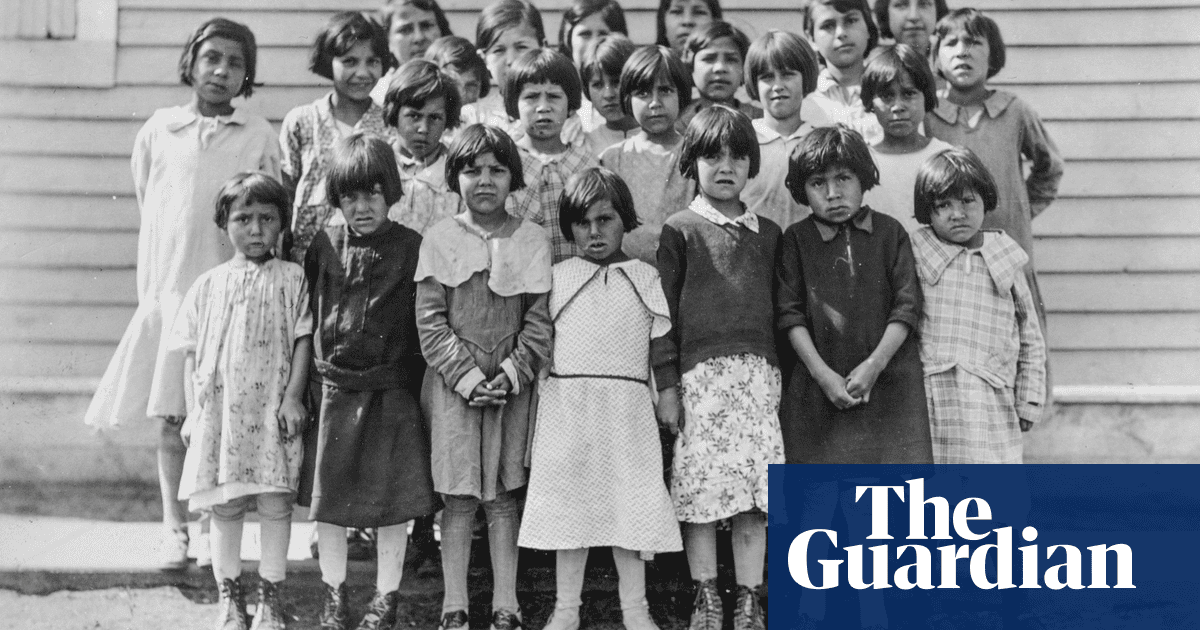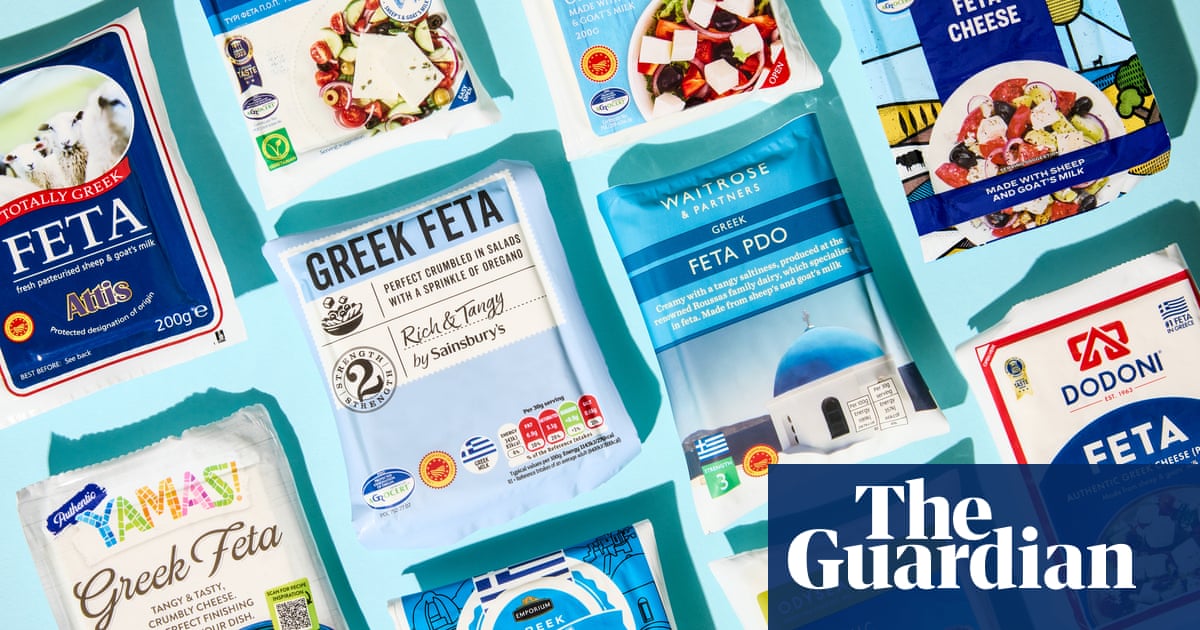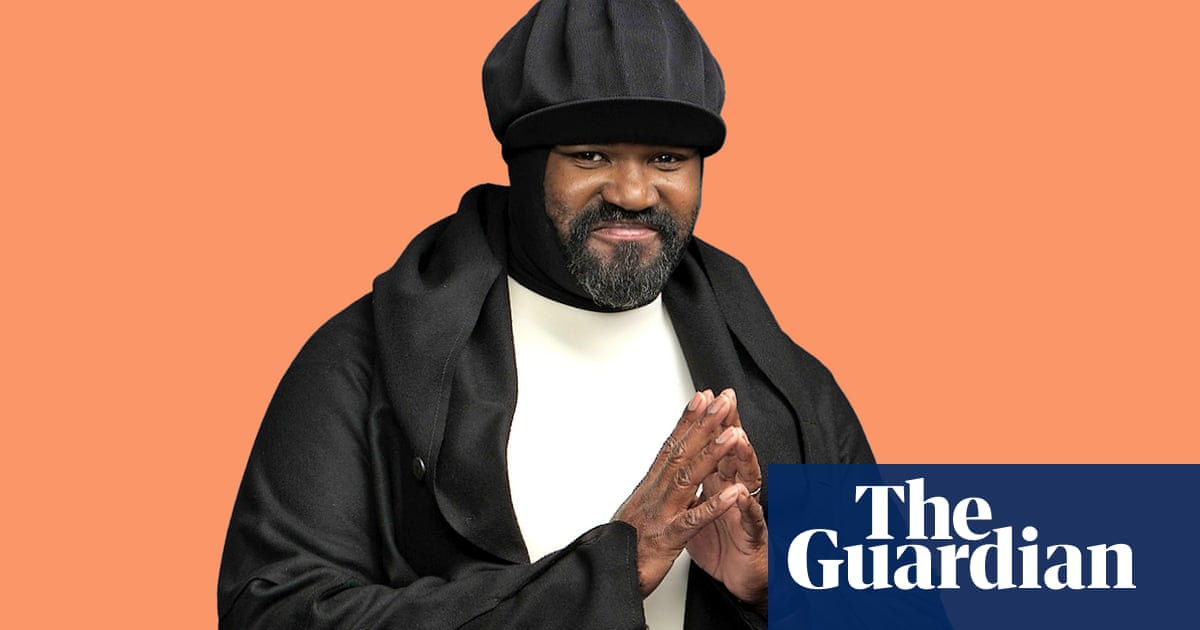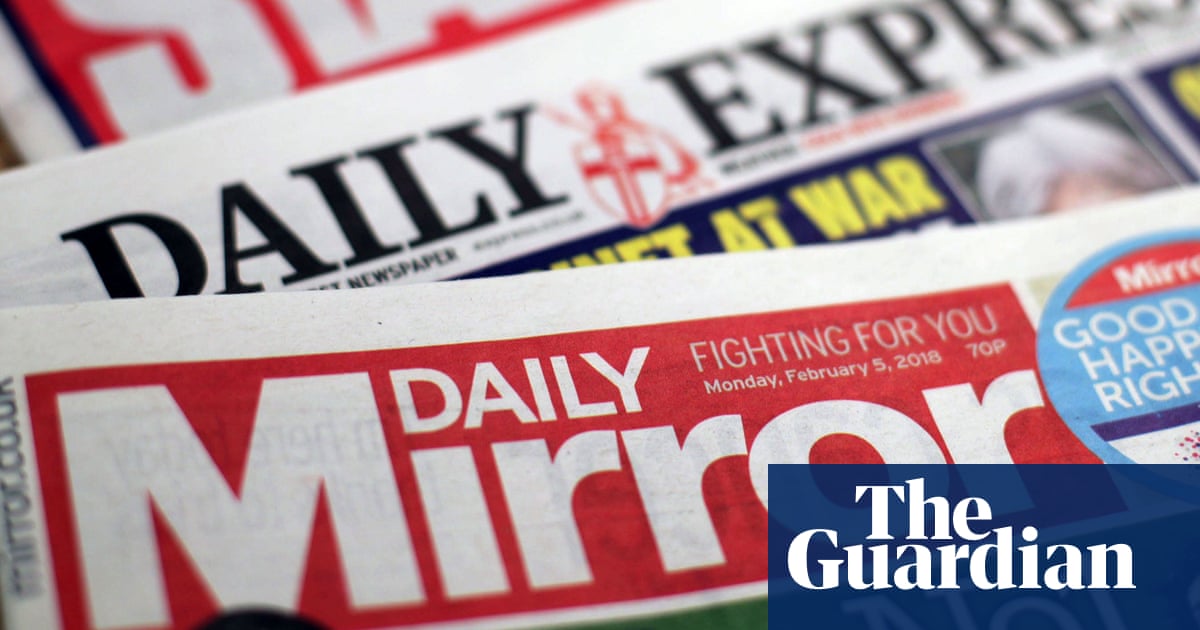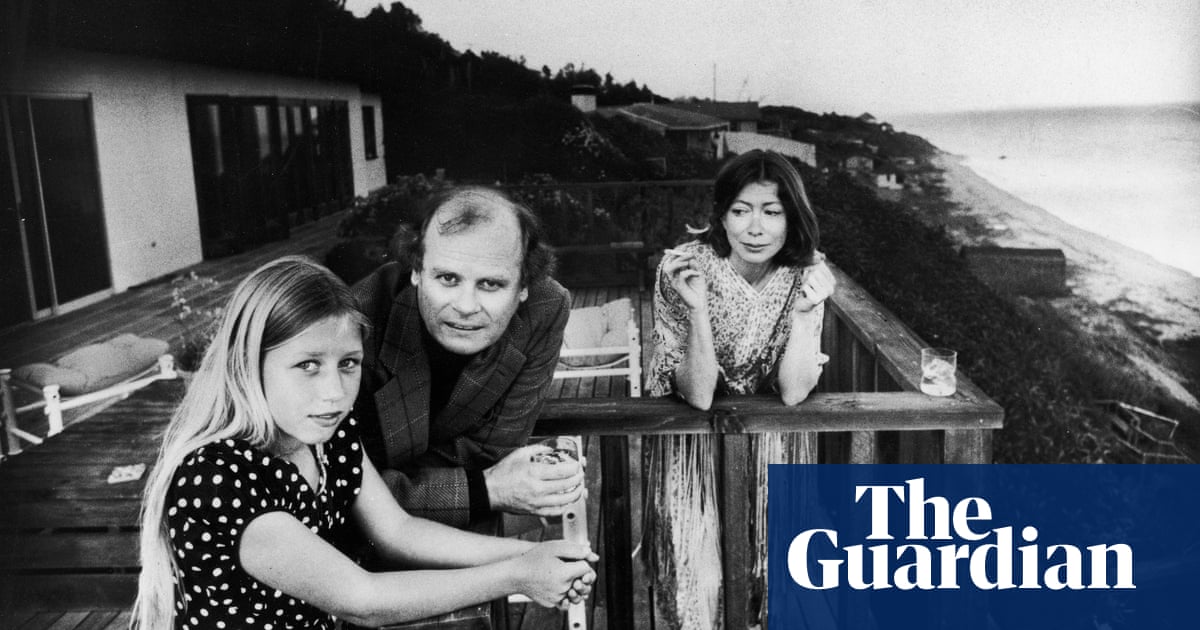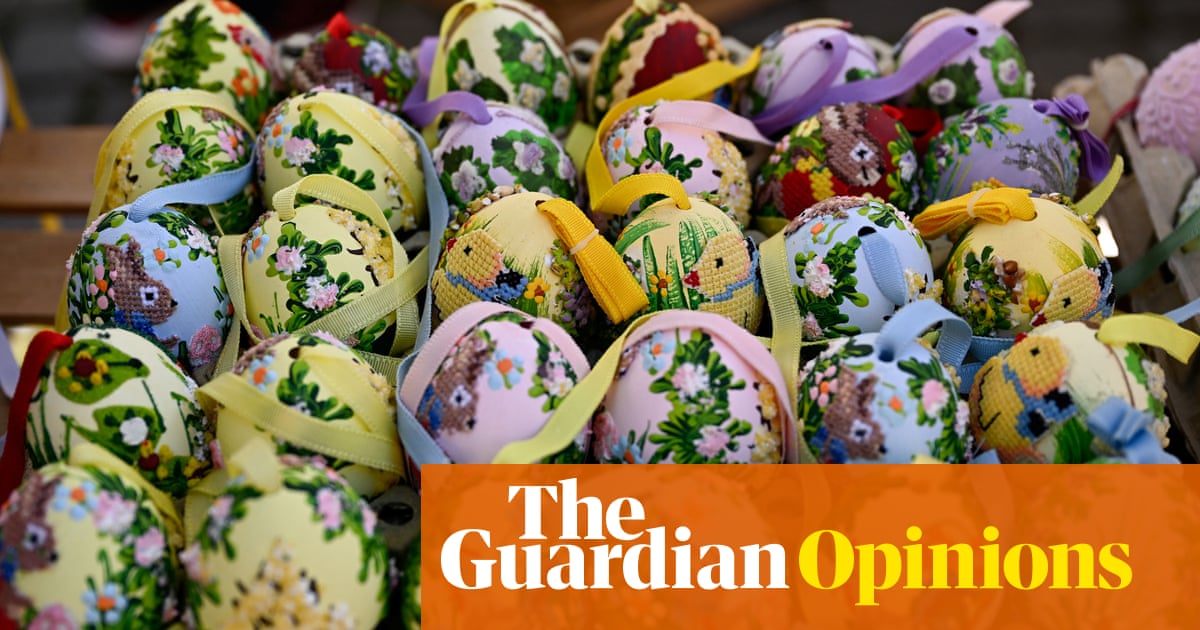There is only one building in North America, probably in the world, where one can browse bestsellers and children’s books by crossing an international border and then sit for an amateur theatre troupe in a regal opera house with each half of your body in two different countries.
Standing near the Tomifobia River, a rushing body of water swollen from the spring melt, the Haskell Free Library and Opera House straddles the border of Canada and the US. Constructed more than a century ago as a deliberate rebuttal to borders and division, the imposing building split between Quebec and Vermont has become a beloved and fiercely protected part of communities in both countries.
But in recent months, the library has become the latest casualty in the trans-border feud that has strained relations between the two nations.
Peter Lépine began volunteering at the library 15 years ago after moving from Montreal, drawn to the creaky warren of rooms, each constructed from different types of wood.
“I’ve loved it,” he says on an April morning. “I love books, I love the people and I love the quiet. And today, mercifully, it’s quiet.”
For weeks, curious onlookers, outraged supporters and gaggles of media have descended on both Stanstead, Quebec, and Derby Line, Vermont, after US officials announced the main entrance to the library, which sits in Vermont, would soon be cut off to Canadians. They cited drug traffickers and smugglers “exploiting” the accessibility and said the closure meant “we are ending such exploitation by criminals and protecting Americans” without providing evidence.
Under the new rules which go into effect in October, Canadians will need to go through a formal border crossing before entering the library.
The news, met with disbelief from patrons and staff, followed a closely watched visit by the US secretary of homeland security, Kristi Noem, in March. Touring the library, Noem said “USA number one!” and then hopped over the black tape separating the two countries and said “51st state” when she landed in Canada. She repeated the joke – echoing Donald Trump’s recent fixation on annexing Canada – three times.
“It was incredibly disrespectful,” said Lépine. “There’s no other way to describe it. And it really hurt.”
Since the start of his second term, Trump has questioned Canada’s viability as a nation, suggesting that it could become the 51st American state, and deriding the outgoing prime minister, Justin Trudeau, as a “governor”. He has also called the border an “imaginary line” and threatened to use economic force to crush Canada’s economy.

The political theatre comes in stark contrast to a building meant to celebrate friendship and cooperation. Opened in 1904, before rules took effect that barred trans-border structures, the library and opera house were gifted by Martha Stewart Haskell, a Canadian philanthropist, and her son Horace. The aim was to gift something artistic to citizens of both countries for generations to come.
When finished, the building housed a 500-seat opera house, complete with a dazzling chandelier and a curtain painted to resemble Venice’s grand canal – original items still in use today. Like the library below, the worn black tape running through the opera marks the international border.
“There are seats up there where, when you’re sitting, you’ve got each cheek in a different country,” said Lépine. The Haskell hosts movie nights, poetry readings and theatre performances for a loyal following.
For the first 120 years of its existence, the conceit of the structure worked, mirroring a way in which the two communities largely shrugged at the notion of a border. Residents would cross over without ever showing paperwork as they shopped and visited friends.
Those halcyon days ended in 2001 after the attacks of 9/11, prompting border officials to begin requiring identification to pass. In recent years, US officials have grown increasingly wary about a sliver of the border that feels even more unprotected than the other 5,000 miles.
In 2018, Canadian Alexis Vlachos was sentenced to 51 months in an American prison for his role in using the library to smuggle more than 100 handguns in backpacks into Canada.

In recent years, the Haskell has served as a meeting point for families separated by the cold realities of visas. In 2018, Iranians facing a travel ban into the US would embrace relatives between the stacks of books. Other nationals living in America on single entry visas and unable to leave the country would also use the library for reunions frowned upon by border officials.
“There are times we have to tell, you know, a father and son who are crying and hugging because they haven’t seen each other in 10 years to leave the building because they’re not allowed to do that,” said Lépine. “It was tough.”
While border officials see the library as something more than a collection of books, so too do staff.
“Books are secondary to a space like this. It’s really a place for people to have access to services. Kids can come to play games and learn French. People who might not have computers can some here. Books are good, but we offer a safe space,” said Mélanie Aubé, the head librarian. “People want to turn this place into something political. But all we want to do is to offer a service for both communities. We just want to stay open.”
The intense scrutiny on the library has left staff exhausted. “You can’t sit at your desk for two seconds because you have two doors to watch now, and we don’t have enough staff to give tours to all the people who ask” said Aubé. “And I’ve fallen behind in my actual job.”
Of the thousands of books tucked into the library’s stacks, one author has emerged as a patron favourite: Louise Penny, the bestselling Canadian novelist and creator of the detective Armand Gamache. Her novels are by far the most borrowed and the celebrated writer, whose works have repeatedly topped the New York Times bestseller chart, is also a frequent visitor to the library.
“It’s very hard to not go immediately to the dystopian novels. What’s the first thing a despot or a tyrant does? They target libraries. They target writers. It targets books. Targets anyone who could read and think and become a dissenting voice,” she said. “Nothing good is going to come of this. It would be laughable if it wasn’t so serious.”
The tour for Penny’s forthcoming book Black Wolf, which coincidentally imagines plans to force Canada into becoming the 51st state was due to start at the Kennedy Center in Washington. But a recent decision by Trump to fire the previous board of the Kennedy Center for its support of “woke” programming, and to install himself as board chair, has prompted widespread artistic backlash.
That move and a broader call for Canadians to boycott travel to the United States amid annexation threats and tariffs from the president, led Penny to scrap all of her American tour dates. She plans to conclude her book tour at the Haskell.
Penny made headlines in recent weeks after donating C$50,000 (US$6,000) to help fund a new entrance to the library, an “elegant” solution to the diplomatic snafu created in wake of new restrictions.
In recent days, US border officials installed a sign that warned only library card holders could cross and access the main entrance. Anyone else “will be arrested and face prosecution” at the hands of US officials.

Currently, to enter the library, Canadians must trek over mats placed atop a muddy lawn, following a set of arrows that lead the building’s former emergency exit. But the library’s management envisioned an accessible entrance along with sidewalks and a larger parking lot.
“I have the resources to help because of the support of American and Canadian readers. The least I could do is give back,” Penny said. “Plus, it’s like giving the finger to the current administration: you close one door, we will open another one.”
At the Haskell, patrons returning books throughout the morning all cite the shared sense of history, culture and values that have long undergirded the friendship between the two nations.
“In places where community spaces are disappearing, libraries like this matter. They’re more than just books. And here, it’s a place for people from both countries to gather. With how things are, that’s needed now more than ever,” said Gordon Dubois, a Vermont resident. Joined by his wife Nancy, the two had driven to the library to donate funds for the construction of a Canadian entrance.
As the couple leave, they pass by a bookshelf, placed perpendicular to the border. Inside is a copy of Between Friends/Entre Amis. Published in 1976, the book was Canada’s gift to the US on its bicentennial, hand delivered to President Gerald Ford at a ceremony in Washington by the prime minister, Pierre Trudeau.
“Because Haskell was built by people working together, it’s really a powerful symbol and a testament to shared values. And it’s hard not to feel that one side has taken a nail and quite deliberately scarred something beautiful,” said Penny. “But the honesty, decency, goodness, fairness and reason that have long defined this friendship will triumph. This, I believe.”

 5 days ago
16
5 days ago
16









